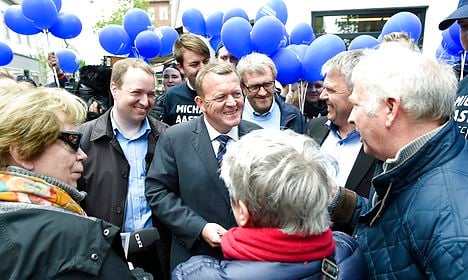Lars Løkke Rasmussen, the leader of the Venstre party, said Friday his party would govern alone after coalition talks with the anti-immigration Danish People's Party (DF) broke down.
See also: Denmark to get one-party government
On Saturday, Danish media reported that one of the main reasons for the failure of the talks was Rasmussen's wish to slash taxes on the highest earners from the current 15 percent to 10 percent.
The tax on high earners (topskat) is paid by those who earn over 459,200 kroner ($68,725, 61,550 euro) per year and is paid on top of other income taxes.
DF, which became the second-biggest political force in the June 18 general election, said it could not accept the proposal after it had campaigned for increased pensions and healthcare credits.
“We are not interested in a reduction in the top level of income tax and we will have nothing to do with it,” the party's vice-president Søren Espersen told Politiken.
“We are not satisfied with what is in the government manifesto and therefore Lars Løkke Rasmussen is now sailing in very choppy waters,” Espersen added.
The inclusion of plans to cut taxes at the top is seen as a major victory for the libertarian-leaning Liberal Alliance, but Rasmussen's road to securing a parliamentary majority for the cuts will be difficult.
The outgoing Social Democrat finance minister, Bjarne Corydon, said the government-to-be was displaying “worrying signs”.
Rasmussen is due to have an audience with Queen Margrethe II on Sunday to formally become prime minister, succeeding Helle Thorning-Schmidt. He has said he will present his government manifesto and roster of ministers after the meeting with the queen.
While minority governments are common in Denmark, a Venstre government would be extremely weak, as it would have just 34 lawmakers in the 179-seat parliament.
In a similar situation in 1973, a Venstre administration with just 22 seats in parliament only lasted 14 months before collapsing and giving way to a left-wing government.



 Please whitelist us to continue reading.
Please whitelist us to continue reading.
Member comments